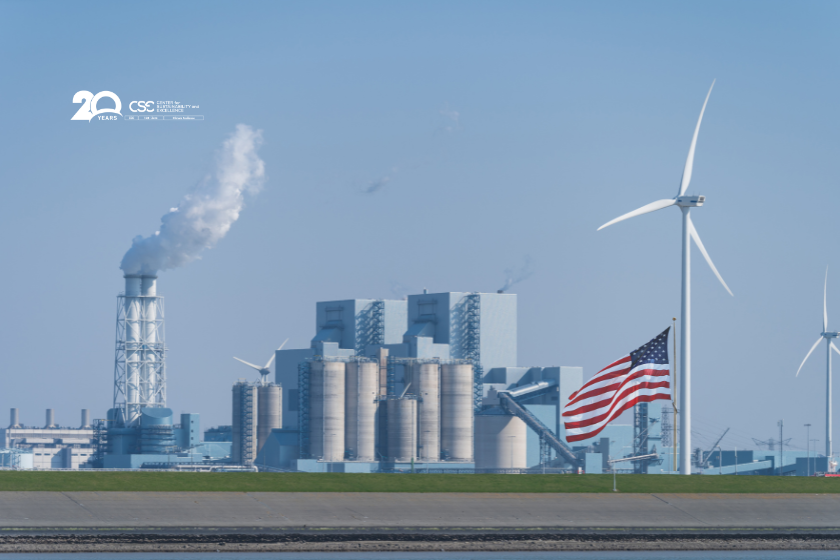The United States is advancing its efforts to build a low-carbon economy, with renewable fuels emerging as a key enabler of this transformation. From ethanol and biodiesel to sustainable aviation fuels and synthetic options, these fuels are reducing emissions, strengthening energy security, and supporting rural economies. As the energy landscape evolves, renewable fuels provide a pragmatic and immediate solution to decarbonizing sectors where electrification faces barriers.
Why Renewable Fuels Matter for the U.S. Economy
The U.S. has set a national goal of achieving net-zero greenhouse gas (GHG) emissions by 2050, outlined in the U.S. Long-Term Strategy. Achieving this target demands not only a massive shift toward renewable electricity but also decarbonizing liquid fuels, which remain essential for transportation, aviation, shipping, and heavy industry.
GreenBiz emphasizes that renewable fuels complement electrification by providing lower-carbon alternatives for existing combustion engines. This dual-track strategy ensures emissions reductions can occur now rather than waiting decades for complete electrification.
Leading Types of Renewable Fuels
Ethanol and Ethanol Blends
Ethanol, primarily derived from corn, is widely blended with gasoline to cut emissions. E15 and E85 blends—containing 15% and 85% ethanol respectively—can lower GHG emissions by up to 43% compared to conventional gasoline. The U.S. Department of Energy (DOE) identifies ethanol as a cleaner-burning alternative that also improves air quality.
Research evaluating carbon capture and utilization (CCU) at corn ethanol facilities indicates potential for near-zero carbon intensity (around 1 g CO₂e/MJ) when paired with renewable electricity (such as wind). Using current Midwest grid electricity, lifecycle emissions remain higher (331–531 g CO₂e/MJ), but shifting to a renewable/off-grid mix shows a 42% GHG reduction from gasoline.
Biodiesel and Renewable Diesel
Biodiesel, derived from soybean oil, recycled cooking grease, and animal fats, can cut lifecycle GHG emissions by approximately 74%, and up to 86% when using waste or fat-based feedstocks.
Sustainable Aviation Fuel (SAF)
The aviation industry is increasingly investing in Sustainable Aviation Fuel (SAF), which can lower aviation emissions by up to 80%. Airlines like United, JetBlue, and Southwest have already started using SAF at major hubs including JFK and Chicago Midway, as detailed in this overview of aviation biofuels.
Advanced and Synthetic Fuels
Advanced biofuels and synthetic fuels produced through Power-to-Liquid (PtL) methods are gaining momentum. These fuels combine captured CO₂ with green hydrogen to create carbon-neutral alternatives. Research published in this study highlights the potential of coupling renewable or nuclear energy sources with synthetic fuel production to deliver scalable, low-carbon solutions.
Policy Drivers Powering the Transition
Federal policy is a significant catalyst. The Inflation Reduction Act (IRA), passed in 2022, directs over $369 billion into energy security and climate initiatives. This includes:
-
Tax credits for clean hydrogen production via section 45V.
-
Incentives for sustainable aviation fuel production.
-
Investments in carbon capture, utilization, and storage (CCUS).
-
Funding for biofuel infrastructure upgrades.
At the state level, policies like California’s Low Carbon Fuel Standard (LCFS) and Iowa’s support for ethanol and biodiesel blending have accelerated the deployment of renewable fuels.
Environmental and Economic Benefits
Deploying renewable fuels delivers benefits beyond carbon reduction:
-
Job Creation: The biofuel industry supports over 65,000 direct jobs, primarily in rural regions, by adding value to agricultural products and waste streams.
-
Energy Security: Renewable fuels reduce dependence on imported petroleum, stabilizing the national energy supply.
-
Air Quality: Cleaner-burning fuels help cut pollutants that cause smog and respiratory diseases.
Moreover, the DOE’s Bioenergy Technologies Office projects that renewable fuels could replace up to 30% of U.S. petroleum consumption by 2050, substantially lowering emissions from transportation.
Challenges to Address
Despite the promise, several obstacles remain:
-
Feedstock Sustainability: The need to balance biofuel production with food supply and land use constraints is critical.
-
Infrastructure Limitations: Blends like E85 require specialized fueling infrastructure, while SAF demand exceeds current production capacity.
-
Policy Stability: Investors seek certainty; extending IRA incentives and establishing durable federal standards can sustain growth.
Strategies for Scaling Impact
To fully realize the potential of renewable fuels, the U.S. should:
-
Extend Clean Fuel Tax Credits: Prolonging credits such as 45Z for low-carbon fuels will maintain investor confidence.
-
Support Research and Development: Enhancing R&D in feedstock efficiency and synthetic fuels can drive down costs.
-
Promote State-Led Standards: Encouraging more states to adopt LCFS-type programs can broaden market demand.
-
Advance Public-Private Partnerships: Collaboration between the federal government, academia, and the private sector can speed up innovation and commercialization.
The Road Ahead
Renewable fuels are no longer a niche solution—they are essential to meeting climate targets and building a low-carbon U.S. economy. They offer an immediate and practical way to reduce emissions in hard-to-electrify sectors while supporting jobs, innovation, and energy resilience.
For sustainability professionals, staying informed on renewable fuel developments is vital to crafting robust ESG strategies. The integration of renewable fuels into sustainability roadmaps can help organizations meet emission reduction commitments and contribute to the broader decarbonization movement.
To deepen expertise and navigate these trends effectively, consider enrolling in our Certified Sustainability (ESG) Practitioner Program. This program equips professionals with the tools and insights to lead sustainability efforts in a rapidly changing energy landscape.







